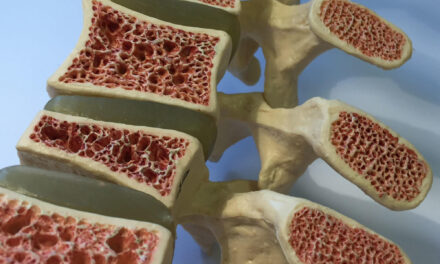A recent study published in The Lancet Regional Health—Europe has revealed that patients diagnosed with celiac disease are at a significantly higher risk of developing chronic liver disease. The risk persists for at least 25 years following the initial diagnosis of celiac disease, urging increased clinical vigilance in managing these patients to prevent serious liver complications.
The research, conducted by a team of scientists from Karolinska Institutet, analyzed data from over 48,000 patients with biopsy-confirmed celiac disease, as well as more than 231,000 matched individuals from the general population. The patients were followed over a median period of 16 years, with data spanning from 1969 to 2017.
The study found that individuals with celiac disease were twice as likely to develop chronic liver disease compared to those in the general population. Notably, this heightened risk persisted for 25 years after the initial diagnosis, with the study indicating that for every 110 patients with celiac disease, one additional case of chronic liver disease would emerge over the span of 25 years.
The risk was further amplified in patients who also had autoimmune or metabolic-related diseases, according to the study’s findings. While the absolute risk difference between patients with celiac disease and the reference group was small, the relative risks of autoimmune liver disease and metabolic dysfunction-associated steatotic liver disease were notably high. The study reported relative risks of 4.86 and 2.54, respectively.
Clinical Implications and Recommendations
The findings emphasize the importance of routine liver enzyme monitoring in the follow-up care of patients with celiac disease, as recommended by current medical guidelines. “In addition to being vigilant for signs of progressive liver disease, clinicians should educate patients about the risk factors associated with chronic liver disease,” said senior author Jonas F. Ludvigsson, a professor at Karolinska Institutet and pediatrician at Örebro University Hospital.
Particularly for patients with a history of autoimmune or metabolic-related diseases, clinicians should pay close attention to metabolic parameters, especially when starting a gluten-free diet, to mitigate liver disease risks.
The study suggests that the positive correlation between celiac disease and chronic liver disease could be linked to a combination of genetic and immunological factors, or even the side effects of a gluten-free diet, which may sometimes lead to unbalanced nutrition.
“The results point to the need for further research into the underlying mechanisms driving the hepatic impact of celiac disease, including the effects of a gluten-free diet, to guide better clinical care,” noted Jialu Yao, the study’s first author and Ph.D. student at Karolinska Institutet.
As celiac disease is a lifelong condition, ongoing monitoring and careful management of patients are essential to prevent liver-related complications. This study highlights the need for healthcare providers to adopt a more proactive approach in monitoring liver health in individuals with celiac disease, ensuring that they receive comprehensive care to address the broader spectrum of risks they face.












